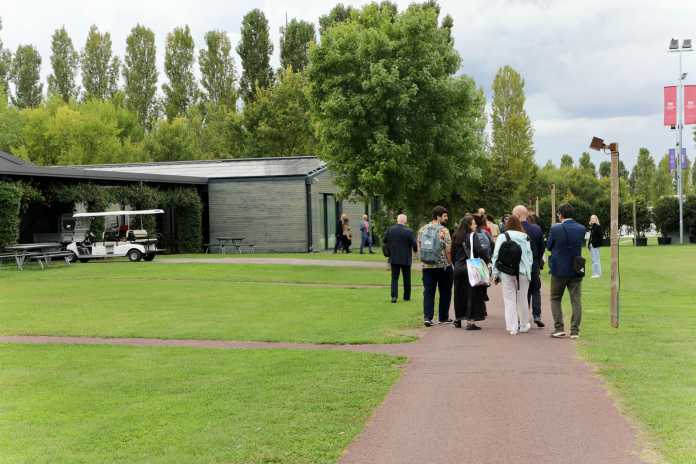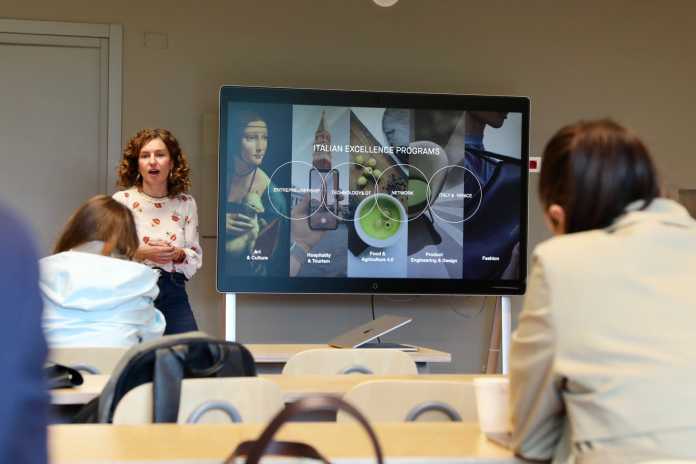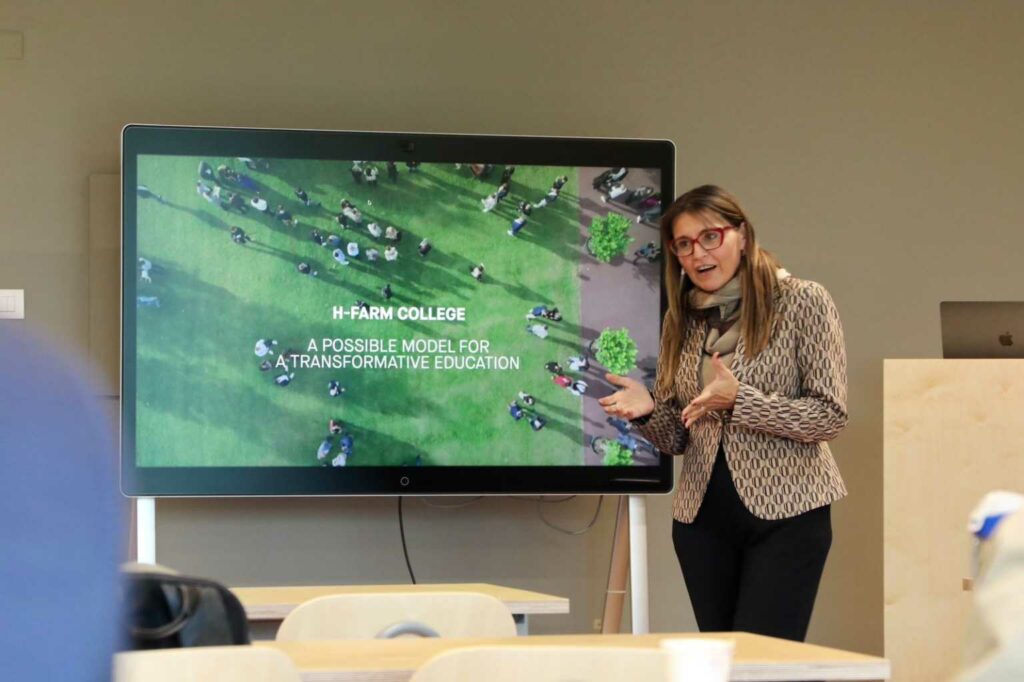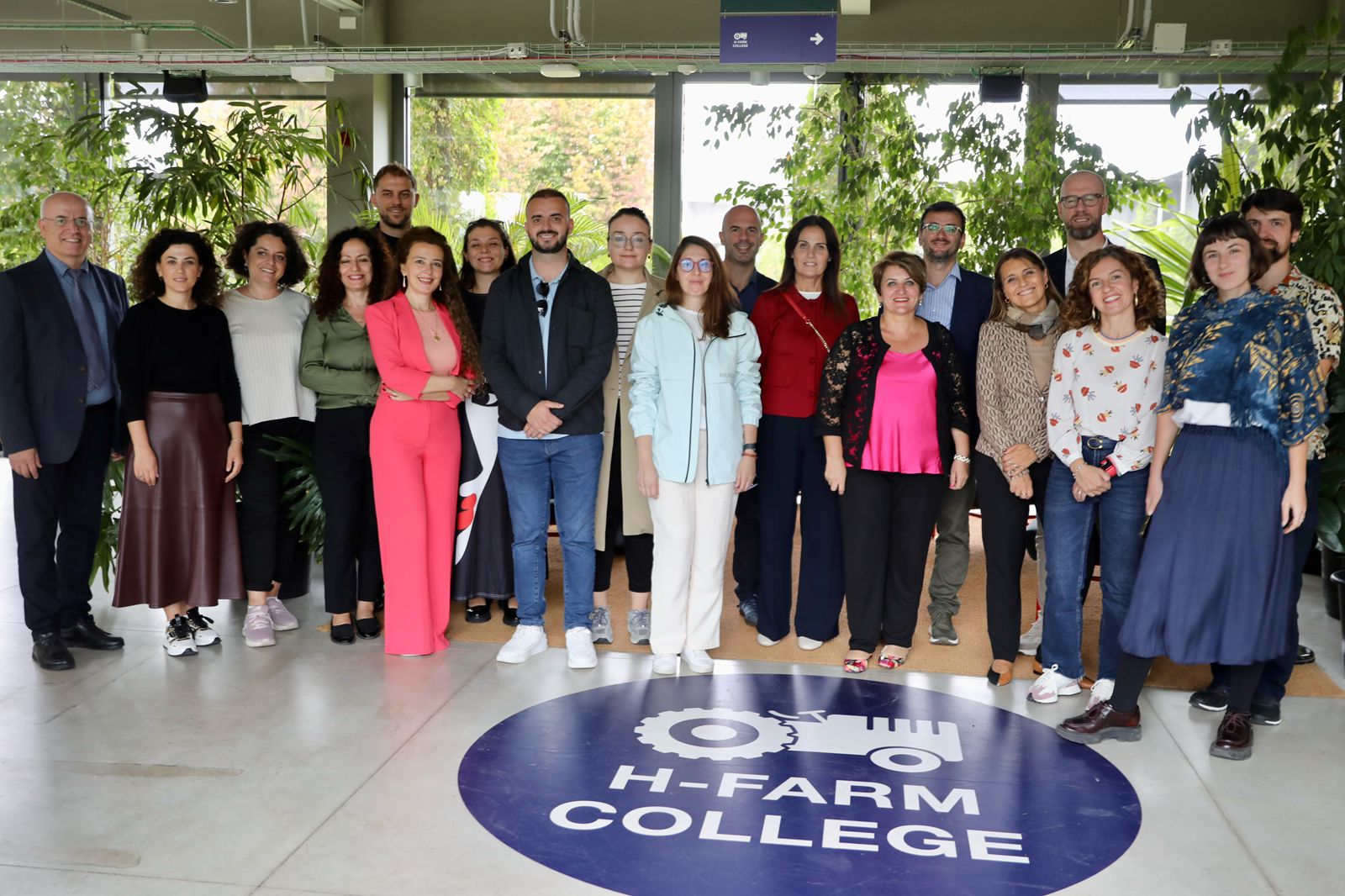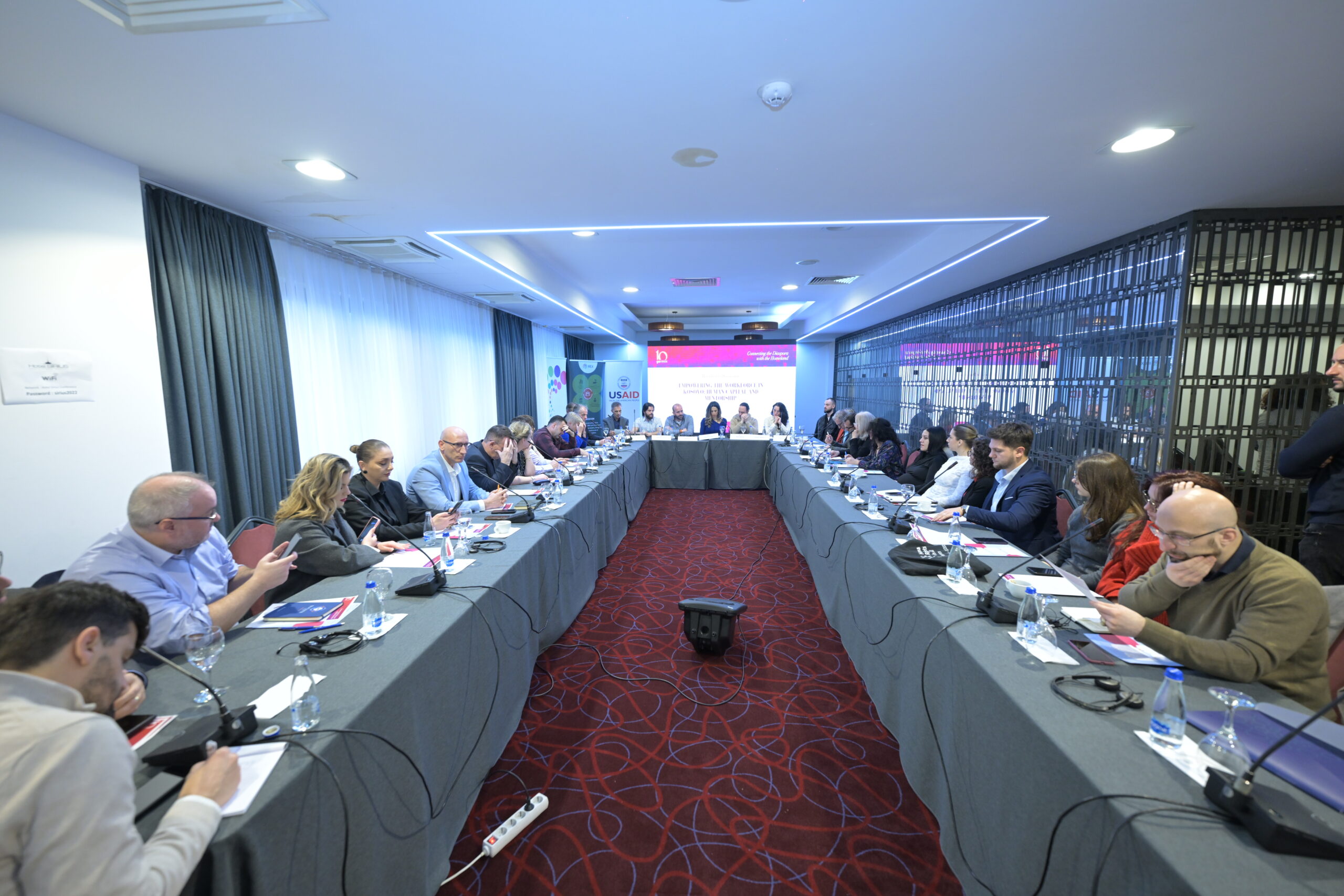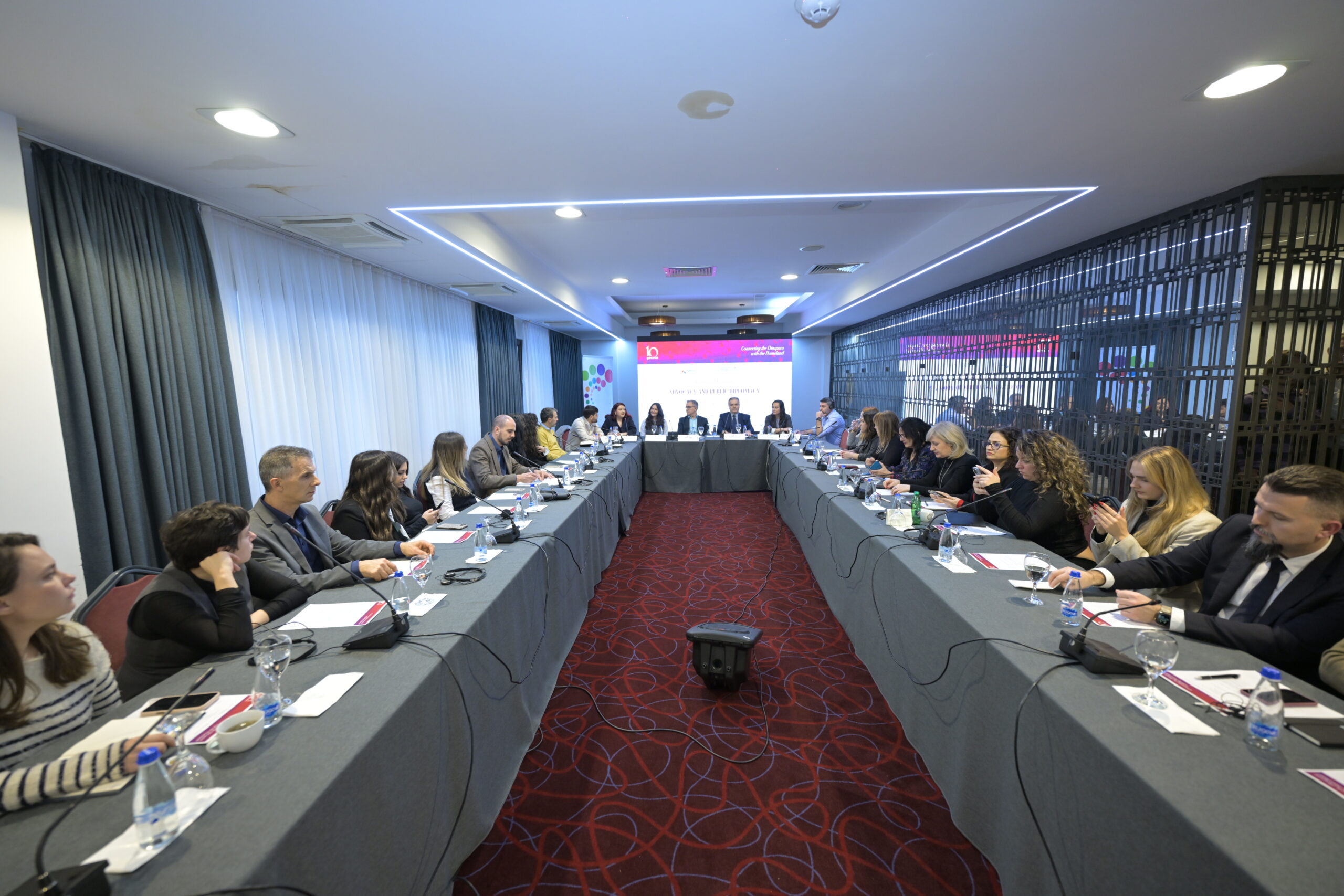In a world where knowledge and innovation know no borders, collaboration between resident academics and those from the Albanian diaspora is becoming increasingly important for the future of education, scientific research, innovation, and entrepreneurship in Albania.
The exchange of experiences and the acquisition of new knowledge from some of the most advanced models in Europe and beyond is one of the core objectives of the project “Diaspora4Innovation.”
The goal of knowledge exchange was at the heart of the study visit to Venice, carried out by a group of 12 academics from both Albania and the diaspora, along with representatives from GERMIN, EU4Innovation, and the media. The visit included the innovation hub H-FARM, a platform and campus built around developing innovative enterprises and innovation ecosystems, aiming to create impactful change and empower new generations to lead with purpose, all supported by artificial intelligence (AI). The group also visited Future Farming, a technology transfer center developed in partnership between Zero and H-FARM.
The first day of the study visit took place at QTT Future Farming, one of Europe’s most advanced technological infrastructures, developed through strong public-private partnerships between businesses and research institutions. The company Zero, which holds a 49% share in Future Farming, is a leading European player in vertical agriculture, offering modular, AI-driven solutions for agriculture, food, pharmaceuticals, cosmetics, and eco-rehabilitation.
The academics learned about the methods and models applied at Future Farming, focusing on the use of technology in agriculture through the “Nature Co-design” paradigm, which studies how life forms in nature to replicate it in ways that produce new solutions for business and social needs through scientific research, laboratories, and technology.
The next visit took place at H-FARM, a space where education, entrepreneurship, and technology come together. The academics toured the modern campus, a space designed to foster creativity, new ideas, and student well-being. They visited the startup center, explored its programs for startup development, and learned about H-FARM College’s educational approach, which emphasizes its international learning offer.
The academics who took part in the visit highlighted how valuable this experience will be for implementing similar practices in Albanian universities in the near future. They also emphasized the importance of such study visits for expanding cooperation between academics based in Albania and those from the diaspora who have achieved great success at leading universities across Europe and the world.
Assoc. Prof. Valentina Ndou, who conceptualized and facilitated the visit, stated:
“Some of the initiatives we saw in Venice are already known to our academics. Many of them have already started applying these concepts in their university courses. However, in Albania, it is still difficult to fully implement such initiatives because the infrastructure is lacking, and broader collaboration is needed, both at the university and inter-ministerial levels, as well as with the business sector.”
Valbona Koçi, Advisor at EU4Innovation, described the study visit as an opportunity to bring diaspora academics closer to those working in Albania.
“Our goal is for diaspora academics to bring their knowledge back to Albania, not necessarily by returning physically. Knowledge is mobile, and in this way, it becomes even more valuable for our country, where the innovation and entrepreneurship ecosystem is rapidly growing,” she emphasized.
Lirim Krasniqi, Co-Director of GERMIN, the organization implementing the Diaspora4Innovation project in partnership with GIZ, described diaspora academics as a valuable national asset.
“Thanks to them, Albania is getting closer to the innovative developments taking place across Europe and beyond, helping to strengthen capacities and raise our standards. So far, we have had the engagement of 10 diaspora academics in 8 Albanian universities, across 12 faculties and departments. For over a year, they have been involved in numerous activities, including designing syllabuses, lecturing, joint research projects, and study visits such as this one to Future Farming and H-FARM, which link innovation and entrepreneurship ecosystems with education. We are proud to see this project producing remarkable results,” he concluded.
The Diaspora4Innovation project, supported by EU4Innovation and funded by the European Union, the German Government, and the Swedish Government, demonstrates how institutions can play a key role in connecting academia in Albania, the diaspora, and policymaking. It ensures that Albanian universities are not isolated but integrated into Europe’s innovation trends.
All the initiatives carried out under this project show that learning knows no boundaries. Knowledge may grow abroad, but innovation always finds its way home, positioning Albania as an important contributor to the regional and European innovation ecosystem.
